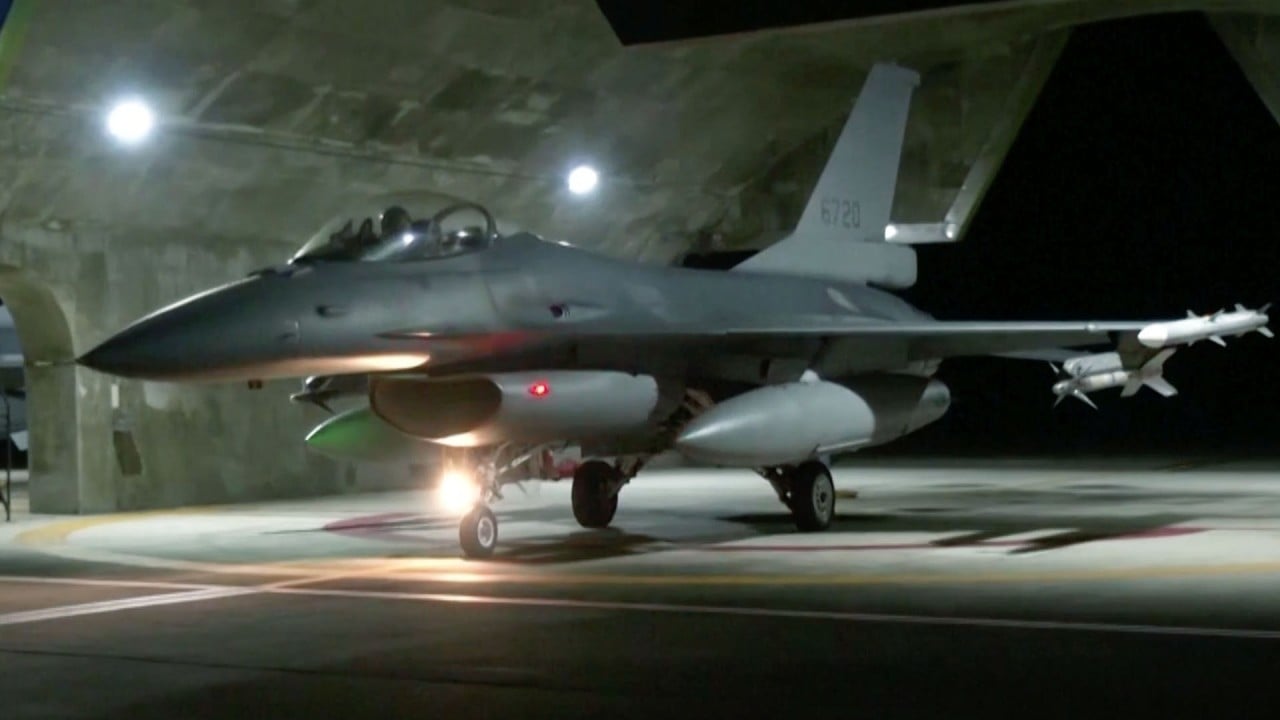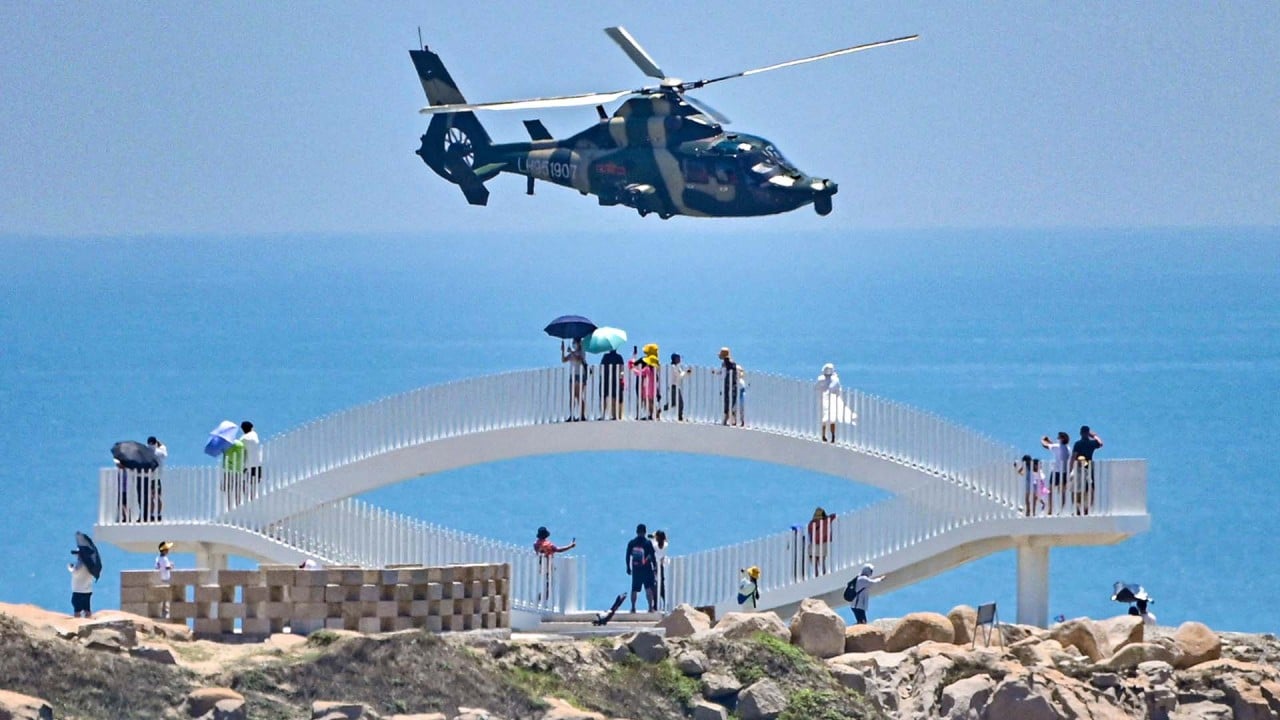
What would be the advantage of a US weapons depot on Taiwan?
- The United States is reportedly stepping up efforts to build an arms warehouse on the island, similar to others it has around the world
- A stockpile could help Taiwan hold out against an attack but there are more factors at play, observers say
And for such a depot to be built, both Taipei and Washington must address other problems, including the location, the main users and who would be responsible for maintaining it, they said.
It also sent warplanes and warships across the median line in the Taiwan Strait, the de facto line separating the island and the mainland. Those crossings have continued since the drills in what Taiwanese and US officials say is an effort by the PLA to create a new normal for a future attack on the island.
Beijing, which claims Taiwan as its own territory, saw Pelosi’s trip as a violation of its sovereignty and a breach of Washington’s one-China policy.
Like most countries, the US does not recognise Taiwan as an independent state but is opposed to any attempt to take the island by force – something Beijing has not ruled out.
The report said the PLA drills indicated that Beijing might try to blockade the island as a prelude to any attempted attack and Taiwan would have to hold out on its own until the US or other nations intervened – if indeed they decided to do so.
A giant weapons depot would then be necessary to enable the US or other nations to intervene, it said.
Elon Musk proposes solution to ease tensions between Beijing and Taiwan
Su Tzu-yun, a senior researcher at the Institute for National Defence and Security Research, a government think tank in Taipei, said a depot on the island would be a logistical asset, giving US troops immediate access to their weapons if they did go to Taiwan’s aid.
The troops could withdraw the weapons from the depot without waiting weeks for their equipment to arrive on ships, Su said.
He said the US had set up weapons depots in other regions, including Japan and Europe, and support for one in Taiwan was growing in the US.
“There were proposals by some US lawmakers in the National Defence Authorisation Act in 2019 to build a weapons warehouse in Taiwan,” Su said.
“With the PLA intensifying its military threats against Taiwan and the lessons of the Ukraine war, more US politicians and academics support the idea of building a weapons depot here to help reduce our reliance on sea transport for military and other critical supplies.”
The US has been able to draw on its depots in countries like Poland, Belgium, the Netherlands and Germany to send weapons to Ukraine.
But unlike Ukraine, Taiwan does not share a land border with other countries, complicating any attempt to break a mainland blockade, according to Chieh Chung, a senior security researcher at National Policy Foundation, a think tank affiliated with Taiwan’s main opposition party the Kuomintang.
“Therefore, a giant stockpile of weapons would help us to hold out on our own before others come to our rescue in the event of an attack from the PLA,” he said.
But there was a big risk that such a stockpile might prompt an angry Beijing to advance its timetable to attack the island, Chieh noted.
“Building such a stock in Taiwan – which does not have official ties with Washington – would be considered by Beijing as a sharp provocation and a serious breach of its one-China principle,” he said.
Some US officials and academics have predicted that an attack on Taiwan could come as early as 2027.
Chieh said there were also other factors to consider, including whether the equipment would be for Taiwanese or US troops, how big the stockpile should be, and who would maintain it.
“If this is for American use, there would be serious political implications as it would mean Taiwan would be seen as an official ally of the US – something Beijing would never tolerate,” he said.
“If it is for our own use, would we have enough trained soldiers to use the weapons?”
Su said the US could skirt the political issues by donating the weapons to the island.
Taiwan is stockpiling supplies to prepare for blockade or attack, official says
Wang Kung-yi, head of the Taiwan International Strategic Study Society, a Taipei-based think tank, said if there were such a depot on the island, the US was likely to stock smaller and mobile weapons, like the Javelin and Stinger missiles that had been used effectively by Ukraine.
But much depended on the determination of Taiwan’s population.
“The idea of stockpiling the weapons is to help our military hold out on its own should the PLA launch an attack on Taiwan, but we need to take into account the will of Taiwanese soldiers and the public and whether they would panic in missile strikes,” Wang said.
“After all, most people in Taiwan have never experienced any war or attack.”



